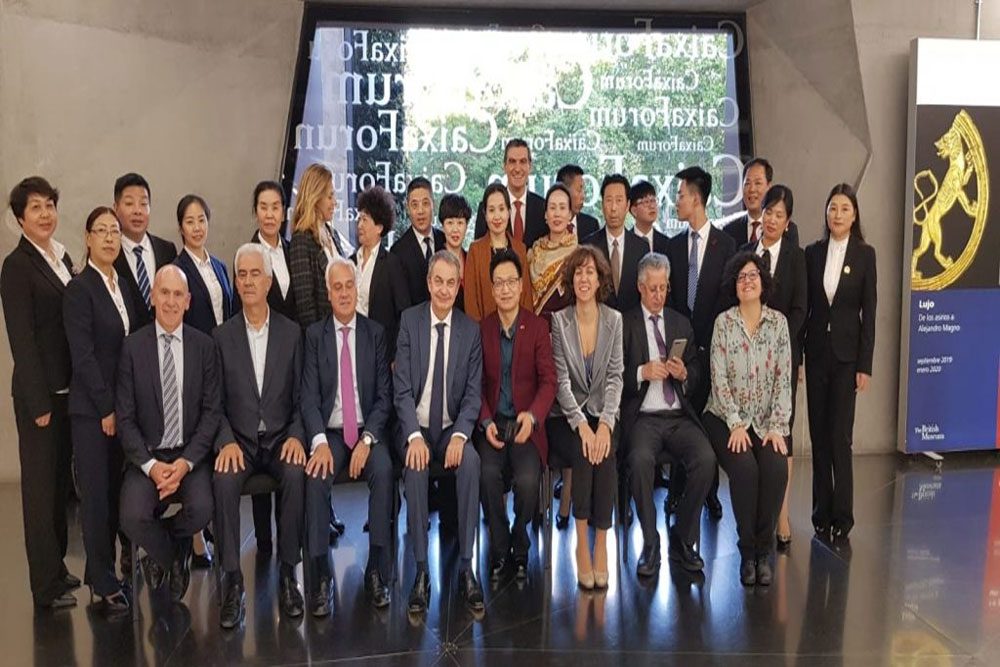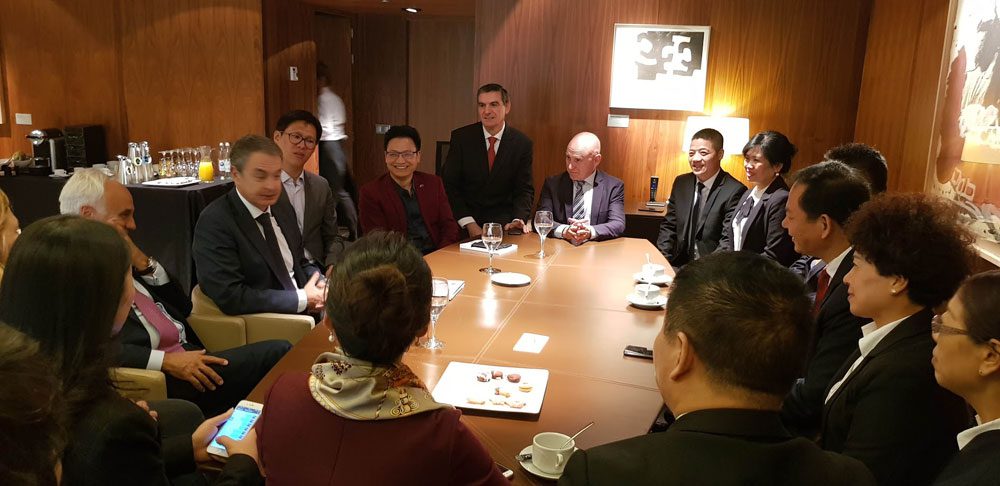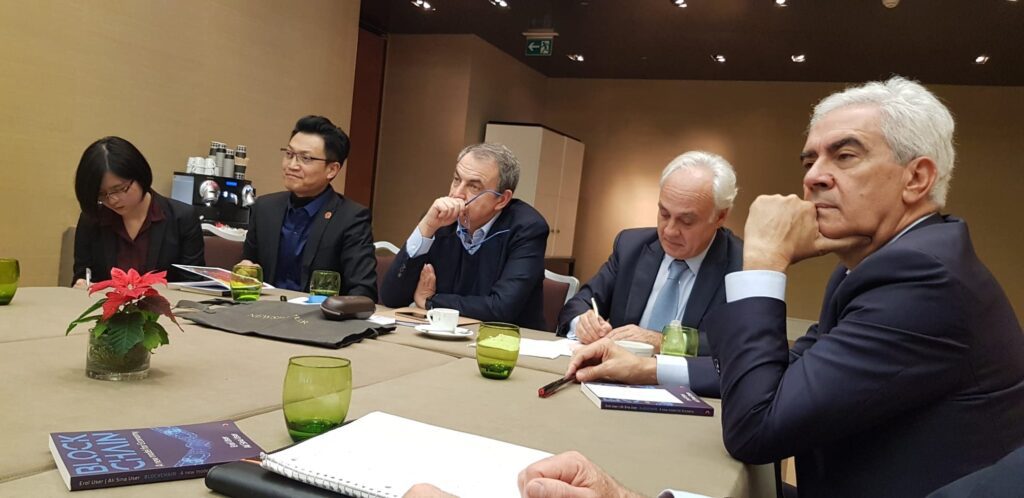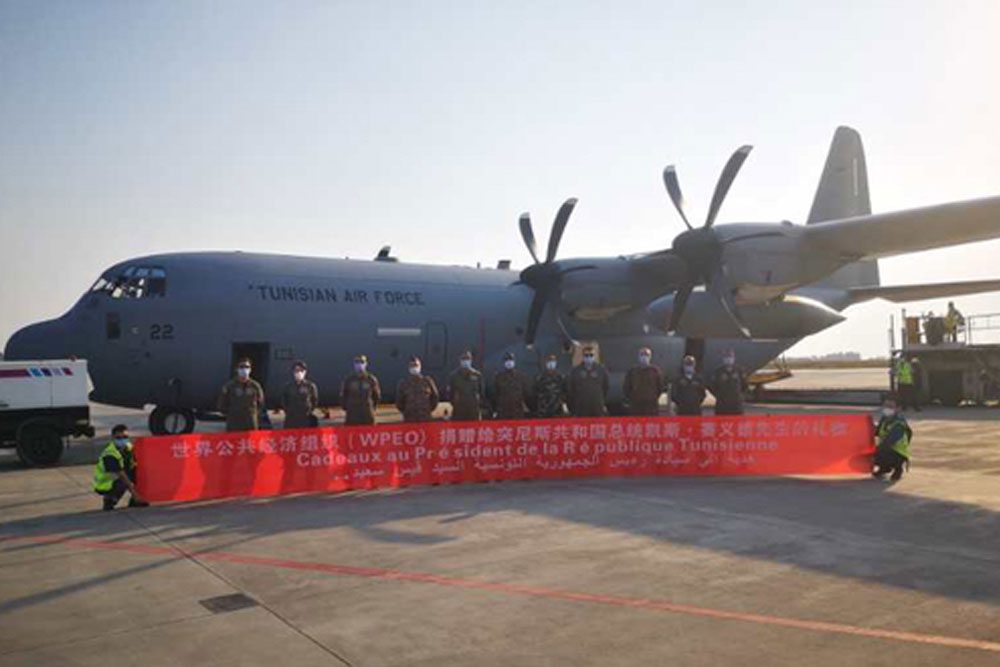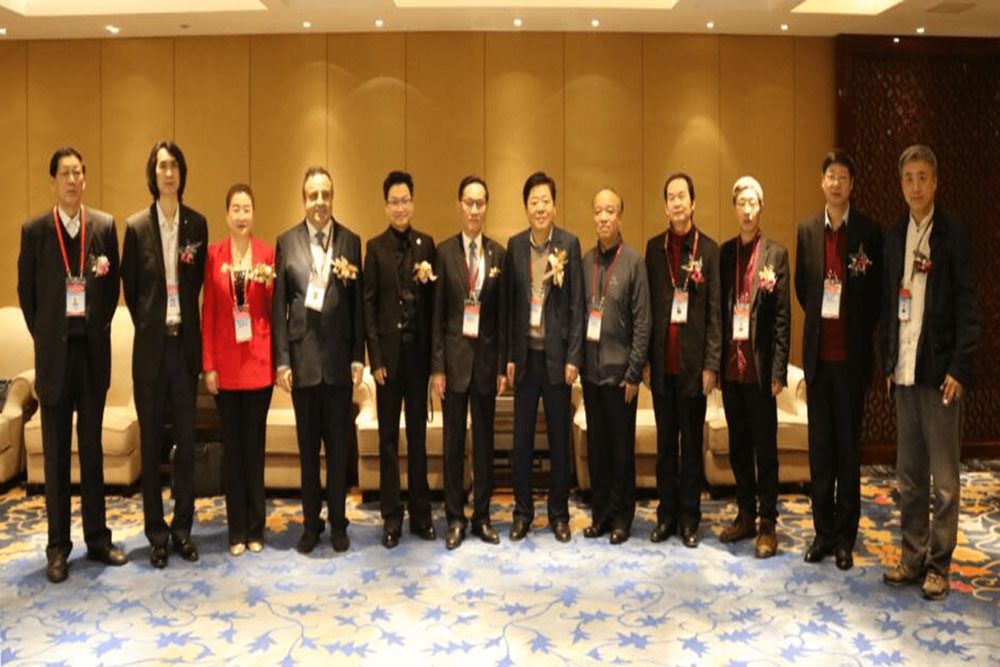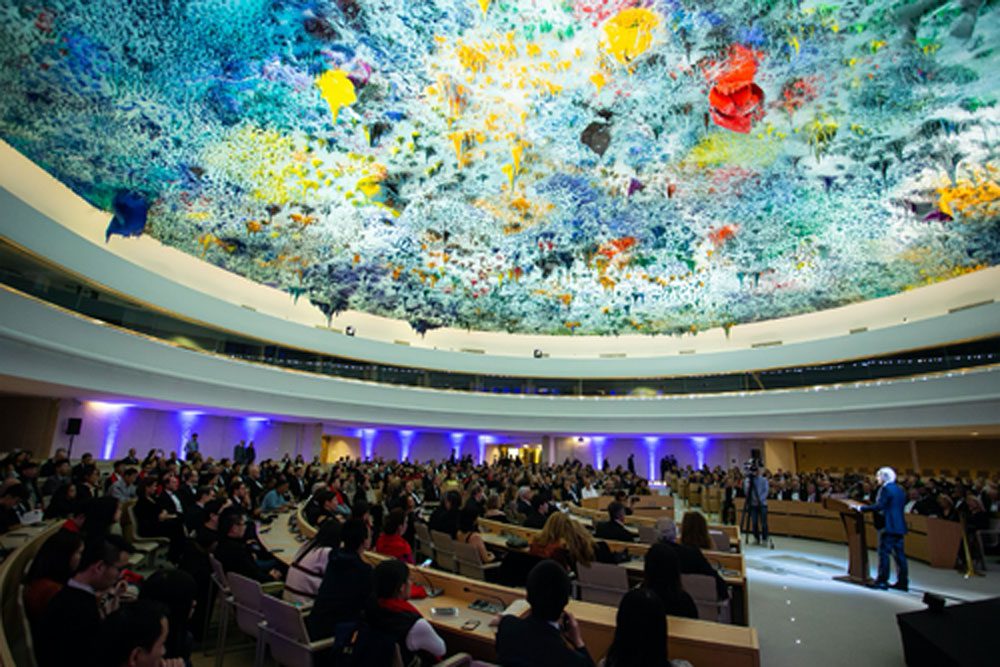On December 14, 2019, the first World Artificial Intelligence Human Intelligence Meeting was held in Geneva, Switzerland.
Among the attendees were:
- JOSE LUIS RODRIGUEZ ZAPATERO
- JUAN ANTONIO MARCH PUJOL
- H.E. SHAUKAT AZIZ
- CHE FU
- JAIME MALET
- FERNANDO ZALLO
- BASILIO BALTASAR
- EROL USER
- KENNETH PUSKHIN
- JOSÉ LUIS BONET
Some of the reflections and debates were the following:
This is a new line of action for the Onuart Foundation. As we know, the Onuart Foundation made the great work of art in the Human Rights and Alliance of Civilizations Room at the United Nations headquarters in Geneva. This Room, which houses the artwork of Miquel Barceló and which is linked to the Foundation, would be the place to start a new path of philosophical reflections on the situation of the world, an emblematic place to be able to hold a great meeting of thought worldwide .
We have on the one hand Art, with painting and music, on the other hand, the strength we have in the defense of human rights and we would have a third axis that would be the philosophical debate on current issues, which is what we call Art of thinking. In these moments of globalization, a Foundation like ours, with a clear international profile, with a showcase such as the Human Rights Chamber, means that we have by our hand to put together the issues that affect scientific, technical and philosophical thought in a way that that with the common language of discussion and philosophical debate they can debate intellectually and lead us to clear teachings that result in the new humanism of the 21st century. It will teach us to bring clarity to issues that we have to resolve in our daily lives and in those of the institutions. With these premises, the Foundation must hold a large international meeting of philosophers and world leaders in the Hall in which older philosophers lead the work of groups of younger philosophers.
It is a very attractive idea for two reasons; first, because in effect the Foundation is given a dimension that will enrich it and can contribute to making contributions to the world that go beyond the work itself. In the current time of the technological revolution and its derivatives, philosophy can renew the dimension of humanism in these moments in which we live in which artificial intelligence, «big data» and technology could threaten freedom and human dignity. . In these moments in which we live in a global world, but without a global government, the role of the United Nations is essential to address the challenges of this century. We therefore require a philosophical thought and debate to see how man has the right to have a sphere of personal autonomy to think, be, live, decide and that the technological age can decimate with «fake news» and interference with private life. . This humanistic vision must be promoted against the vision of Google, Amazon and others in which the digital age controls man with frivolous language, with packaged news, ready to be consumed.
At the moment the directed man prevails, the man of the machines predictable and that we must debate to redefine a civilizing process, enlightened, morally strong and that starts from the idea of autonomy and human intelligence.
We must be able to weave the humanistic story of technology, which helps cultural adaptation, that is, there may be a large number of people who are not able to adapt to this new technological era and begin to disconnect.
The technological revolution is going to have a series of important consequences in the humanistic and ethical dimension, which could lead to an erroneous post-humanist philosophy in which the overcoming of the human being, imperfect according to this philosophy, and which proposed a half-human man, was proposed and half a machine to become a falsely perfect species. The problem with current philosophy is that it does not address the practical problems, which are the ones we are talking about, the technological revolution, the political crisis, which are basically the crisis of the Enlightenment paradigm. There is also a crisis of rationality, which is what is most evident in the political crisis we are experiencing. We must recover a project that addresses how to conceive a practical philosophy teaching in the sense that it connects with Eastern philosophies, which are more focused on the management of human life, emotions and relationships, that is, that would give it the popular counterpoint to the Onuart Foundation project, since we would try to make discussions as practical as possible. It is the case of the autonomous car in which cars have to be programmed, but since these vehicles might have to make moral decisions that affect human lives, these philosophers must be what define the programmer how to act. These practical philosophical actions that the Foundation would carry out in these great meetings will also serve to revitalize Geneva taking into account the crisis of multilateralism and make it possible for Europe to defend this part of the United Nations.
Another aspect that we must address is that of the great battle to combat disinformation. One of the consequences that we are experiencing in the technological world is citizen disinformation and how this influences electoral processes. We agree that citizens must be trained so that they can have critical thinking that is still philosophy, and I think that one of the working groups could work on disinformation.
All these aspects fit perfectly with the new line of work outlined and which shares the sense of urgency in its implementation. With this approach, the Foundation becomes a platform where thinkers from all over the world share their intelligence and way of understanding the dilemmas of our time and work on their resolution.
This issue is fundamental and has a global, international framework for action, providing solutions that can be applied to any country, which is how it sees the Onuart Foundation in the future. The philosophical part must be united with the ethics. He adds that the word culture must be in this debate between science and technology. Supports the idea of the Forum, which is totally in line with our social support strategy and can be an added value.
The foundations are being laid to have the great debate of the 21st century, which will articulate the challenges of our time, that is, the meeting between humanism and technology. Artificial Intelligence does not exist, there is an artificial brain created by technologists, which imitates a brain, based on what is known of the human brain, which houses intelligence and which is therefore Human Intelligence or Intelligence. In this debate on technology and humanism, what is at stake is the capacity that human society may have to impose limits, this capital question, since to what extent as a global society do we detect a danger and are we able to prohibit ourselves from traveling in the path that leads to this place. Until now, what we have been experiencing is that when any researcher, when any project advanced with impunity in all fields of knowledge, be it technological, genetic, etc. The idea that an educated society can detect the capacity for self-destruction that the human being has and that of imposing a limit is pointed out in a Chinese book of the 3rd century BC by the thinker Yang Zhu that says “the holiest thing is to stop where it is not possible to know more. Whoever does not understand, the wheel of heaven will disrupt him. ”
The script of this great meeting of Eastern and Western philosophers around the dilemma of humanism and technology has an illustrious precedent in this Taoist philosopher who can teach us a lot, especially to conceive the possibility that we prohibit certain discoveries.
Different considerations are also addressed; The first is that we lack the political dimension for this summit that we will hold in 2021. It is not so much a matter of us as a human society banning issues from ourselves but rather identifying which interests are prevailing in the development of artificial intelligence. When scientists and those who have developed, for example, autonomous weapons, are warning that this weaponry be regulated because it can be harmful to humanity, it is not a matter of prohibiting it as a human society, but of regulating the activities of those People who, as they have financial interests in the subject, will never want to regulate it.
Secondly, we must highlight a fundamental issue that is the fight against disinformation. Now we are experiencing it in Spain, but it has also been experienced in other countries, such as Ukraine, the United Kingdom, and the United States, regarding disinformation and the interests behind these disinformation actions against the population, which are without he doubts a threat to democracy. This disinformation is producing a type of public debate that prevents calm decision-making, without being able to analyze the information and make the appropriate decisions. We have seen this in attacks on the rule of law against Spain. We have to fight the hoaxes and disinformation that is leading to a breakdown of coexistence in Spain, this being the basis of democracy.
This debate that we will carry out in the year 2021 is perfect for the current times, but we need, in addition to the philosophers and technologists, politicians who understand social issues well, make humanity limit itself, contain itself so that, Knowing that everything that man can do he will do, and that can lead us to destruction, mark these actions with rules. I also understand this debate with the presence and agreement of the three great protagonists of today’s world; on the one hand, China, on the other hand, the big technology companies, such as Google, Apple, Facebook, Amazon and finally politicians with high social aims and then call a debate with philosophers, scientists and politicians who avoid, as perhaps we are heading , to a future loss of liberties.
This debate is very much internalized in the objectives of the Foundation, and it is very meritorious that the Foundation tries to discuss about re-stimulating the critical capacity of humanity, which makes it react to injustices, proposing ideas and alternatives, and what It is very important, artificial intelligence is questioning the freedom of the individual, since if everything is predetermined, if we know the time we are going to have, the things we have to buy, the places we have to visit, the music we have that listening, the news that we should know, etc., makes personal autonomy limited, our ability to choose, from the unpredictable, is reduced and limited.
All these issues will be addressed in more detail at the meeting to be held in January 2021 in Geneva, in the Hall of the United Nations Palace and to be led by the Onuart Foundation together with WPEO.

